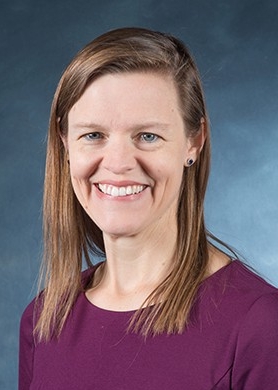Boston College will introduce a major in neuroscience within the Department of Psychology next fall, enabling undergraduates to obtain a research-focused degree in a field whose interdisciplinary nature and application has made it increasingly popular among college students.
BC administrators and faculty say establishing the neuroscience bachelor of science major addresses a longstanding student demand for the program, capitalizes on departmental strengths, and puts the University on par with many peer institutions. Neuroscience, they add, offers compelling subject matter for a Jesuit, Catholic university with a liberal arts-based curriculum that champions interdisciplinary work and a concern for the human condition.

Gianinno Family Sesquicentennial Assistant Professor of Psychology John Christianson led the committee that designed the major. (Gary Wayne Gilbert)
Through the major, students will gain a better understanding of the biological basis of brain function in relation to thought and behavior. The program has co-requisites in biology and chemistry as well as elective natural science co-requisites, and emphasizes exposure to hands-on, laboratory science. Students will take courses that are related to evolution, genetics, physiology, neurobiology, and the neural basis of higher cognitive and emotional processes in humans.
While the program has a scientific orientation, administrators and faculty point out that neuroscience holds relevance for fields such as nursing, social work, mathematics, economics, philosophy, even history.
“How the mind works is of fundamental interest in so many contexts—like the way we make decisions in regard to money, work, family, or love,” says Gianinno Family Sesquicentennial Assistant Professor of Psychology John Christianson, who led the committee that designed the major. “Neuroscience is a means to understand the chemistry of the brain, to make connections between biology and behavior. And it’s still very much a new field, perhaps 50 years old, so we’re only just starting to crack the code.”
Professor Elizabeth Kensinger, the department chair, says the major “will enable students to become critical thinkers as they reflect on topics that are at the core of the human experience: How do we learn through our experiences? How do brain cells give rise to thought and behavior? How does context influence everything from what we see to how we behave toward others? Which aspects of behavior are easily controlled and which proceed without conscious awareness?”
She adds, “Students will learn how recording from neurons can shed light on the processes that go awry when people respond with fear despite multiple cues of safety. They will learn how early life experiences, and the effects of those experiences on brain development, can have lasting consequences on decision-making and behavior. They will learn about the processes that allow a neural trace of a past event to persist as a memory, and they will consider the implications when that memory is erroneous or incomplete.”
“ How the mind works is of fundamental interest in so many contexts—like the way we make decisions in regard to money, work, family, or love. Neuroscience is a means to understand the chemistry of the brain, to make connections between biology and behavior. ”
Morrissey College of Arts and Sciences Dean Gregory Kalscheur, S.J., hails the addition of the neuroscience major. “It is a great fit with our mission focus on integration and interdisciplinary teaching and research. Students majoring in neuroscience will develop a sense for important connections among a range of disciplines, which contributes to our Jesuit, Catholic mission of developing an integrated sense of the wholeness of knowledge. The new major also connects with our desire to promote integrated scientific study in service of health as a dimension of the common good.”
Neuroscience is one of the fastest-growing disciplines in academia during the past few decades: Studies show the number of undergraduate neuroscience programs in the U.S. tripled from 1996 to 2006 alone, while the number of core journals in neuroscience rose from 11 to 22 during 2006-2015. BC’s Psychology Department, which had included a neuroscience program as part of its strategic plan several years ago, found that psych majors and students enrolled in psychology courses overwhelmingly agreed that a neuroscience degree was important to their career goals, and that they would change their current major to neuroscience if it was available.
Also of interest to the department was that, of the top 40 institutions in the U.S. News & World Report rankings of major research universities—including BC—at least 18 had a neuroscience program. Moreover, a review of neuroscience programs at 15 peer institutions found that 13 offered an undergraduate major, and the remaining two a minor.

Psychology Chair Professor Elizabeth Kensinger (Peter Julian)
The department also looked at its own capabilities, says Kensinger. “One of the long-standing strengths of the Psychology Department has been its commitment to the integration of neuroscience and psychological science approaches toward understanding human behavior. Among the most notable features of our department is its blend of behavioral neuroscience, cognitive neuroscience, and psychological science approaches to addressing questions at the core of the human experience.
“We are therefore thrilled to be able to offer students a major in neuroscience, one that emphasizes the interdisciplinary synergy that is required to understand the complexities of human thought and behavior.”
BC’s Jesuit, Catholic character and commitment to the liberal arts provide another distinctive quality to its neuroscience program, say Christianson and Kensinger. Christianson points to the research undertaken by his colleagues, including Associate Professor Liane Young and her Morality Lab, in which she studies the cognitive underpinnings of moral judgments; Associate Professor Gorica Petrovich, who researches how environmental cues affect food intake; and Kensinger herself, an expert on the effect of emotional content on memory, and how these influences change during the lifespan.
“An exploration of neuroscience requires students to reflect deeply on the human condition, from multiple angles and levels,” says Kensinger. “The inherent interdisciplinary nature of neuroscience also requires students to see the interconnections across fields of study: to appreciate, for example, an MRI taken while a person is thinking about a childhood event is to see biology, physics, and computer science coming together to understand the human experience of memory.
“Whether in the courtroom or the classroom, neuroscience already has led to new ways of thinking about the nature of human behavior. Neuroscience holds great promise for deepening the understanding both of mental health and the interconnections between mental and physical health. And advances in neuroscience also have been deeply synergistic with advances in technology.”
—Sean Smith | University Communications




